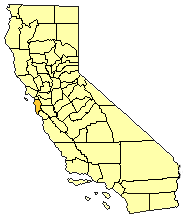 San Mateo County
San Mateo County
Regional Coordinator: Pat Obuchowski
Ana Maria Sanchez, CAWA San Mateo Policy Chair, WIN Board of Directors
Report prepared by: Pat Obuchowski
Economic JusticeIndividual actions:
- Support “Take our Daughters to Work” Day (especially women in nontraditional jobs.)
Local actions:
- Support transitional housing for women post-shelter/recovery homes;
- support, study and get on the board of the new Workforce Investment Act;
- find out how it is being implemented in the County and hold the county accountable;
- teach communication and business skills, e.g., ESL, computer skills, customer service skills;
- support Head Start.
State & National actions:
- 50/50 by 2020 (50% women in elected positions);
- support women for office by encouraging voter registration and education.
National actions:
- Ratify CEDAW/Optional Protocol.
Decision-Making (a.k.a. Politics)
Individual actions:
- Encourage voter registration;
- educate those we know regarding candidates and issues by talking about them;
- volunteer for political campaigns for candidates who support women’s issues.
Local actions:
- Work for gender-disaggregated data on health and economics;
- separate medical research statistics on women from those on men.
State action:
- Work for gender-disaggregated data on health and economics;
- separate medical research statistics on women from those on men.
National action:
- Work for gender-disaggregated data on health and economics;
- separate medical research statistics on women from those on men;
- ratify CEDAW and Optional Protocol.
Education:
Local actions:
- Investigate how schools are implementing Title IX in sports, women’s history, text books, girls programs;
- work for equal access for training and use of computers and technology equipment; ensure instructors and the environment for K-12 are girl-friendly;
- support, publicize and attend “Expanding Your Horizons” conferences;
- sponsor girls for “Expanding Your Horizons” conferences and other seminars or conferences that encourage girls to be the best they can be;
- identify and promote business sponsors to above.
State actions:
- Lobby and vote for educational funding;
- monitor curricula at the state level;
- require all medical students to learn how to perform safe abortions.
National actions:
- Ratify CEDAW and Optional Protocol.
Santa Cruz County
Sheila DeLany
What has worked best in Santa Cruz County are widely-based coalitions with a narrow focus, and narrow-based groups with a wide focus–and they often work together on issues.
The Reproductive Rights Network was formed by women’s health, welfare and advocacy groups to persuade our local State Senator to stop voting against Medi-Cal funding for abortions for low-income women. The Network now has 45 member groups, and the focus is kept always on women’s health, legislation, and monitoring the implementation of legislation. Activities include the yearly Roe v Wade brunch, an information booth at the County Fair, frequent tabling on current issues, and monthly thank-yous to local abortion providers.
The Valley Women’s Club is a nonprofit with local membership and an agenda that covers a wide range of interests, all informed by a feminist consciousness. They are members of the Reproductive Rights Network, and VWC committees have members from other groups who share the same interests: environment, education, health, legislation, youth, and scholarship. The Club is committed to the Beijing process, and has participated in numerous pre- and post-Beijing conferences and teleconferences and the California Women’s Agenda.
The Santa Cruz County Women’s Commission got a CEDAW resolution passed at the County level in 1995, sent three members to Beijing, and has participated in and sponsored or cosponsored activities, legislation and follow-up, including teleconferences, CAWA, and numerous informational presentations on the Beijing Conference and related activities to community and civic groups and schools at all levels. The Commission’s welfare reform implementation and review subcommittee works with providers and recipients, and acts as facilitator, watchdog and intermediary. This year they developed a confidential evaluation process, a process for program self-certification, and a streamlined flow chart and participant packet to help participants solve problems and negotiate the bureaucracy.
The County Domestic Violence Commission has 26 members: policy makers and individuals including police chiefs, sheriff, judges, providers, Women’s Commission. In the last year they have developed medical, law enforcement and educational protocols and are part of a Statewide effort to develop a uniform method for courts to collect consistent information for restraining orders.
The City’s Commission for the Prevention of Violence Against Women sponsors many programs, including an annual January speakout, Teen Women’s Day, the Clothesline Project, Hands Are Not For Hitting, and self-defense classes.
Beyond Beijing of Santa Cruz County held countywide meetings on women’s health and developed a position paper on health for the 1996 CAWA Assembly. They have held International Women’s Day Marches, a panel on Micro enterprise for Women, a Forum on Women and Economic Justice, and a Focus on Latin America. This year, in conjunction with the University Women’s Center, they are bringing Women in Black, a multi-media performance group focused on the impacts of war on women’s lives, for two performances.
In addition to these and many other groups, we have women in key positions for policy-making and implementation. We also have a largely pro-woman, pro-choice group of elected officials and their staffs with whom we work closely on major issues. We look forward to sharing and learning strategies for the work ahead!
This County is a work in progress. Stay tuned for actions, events and updates!
